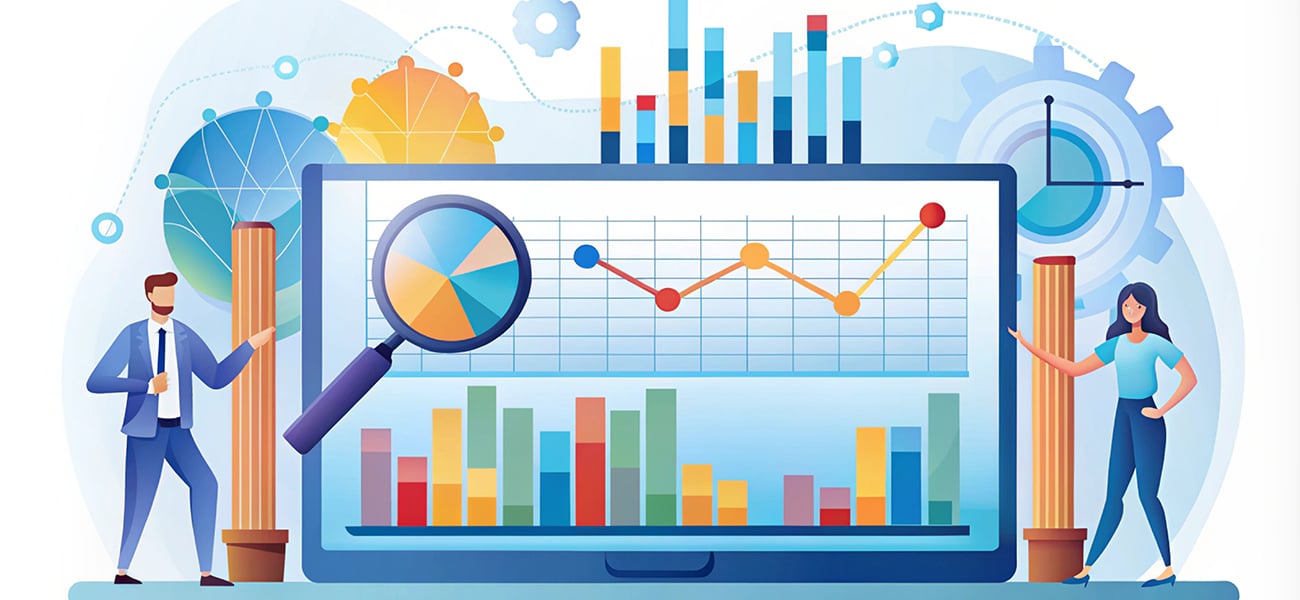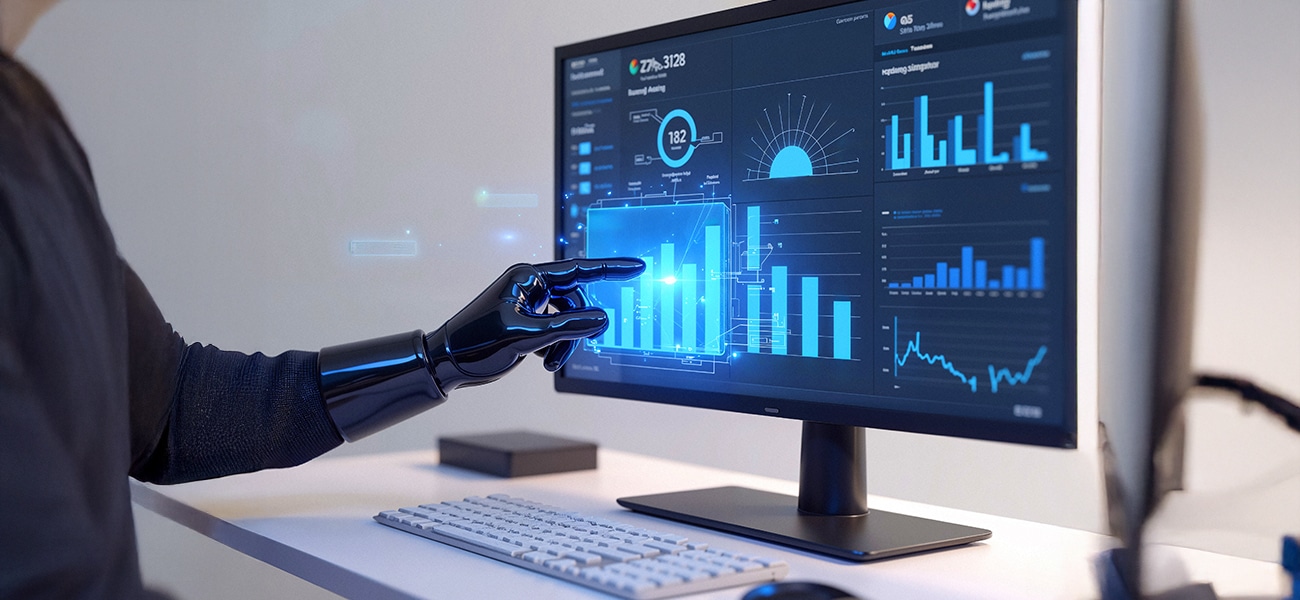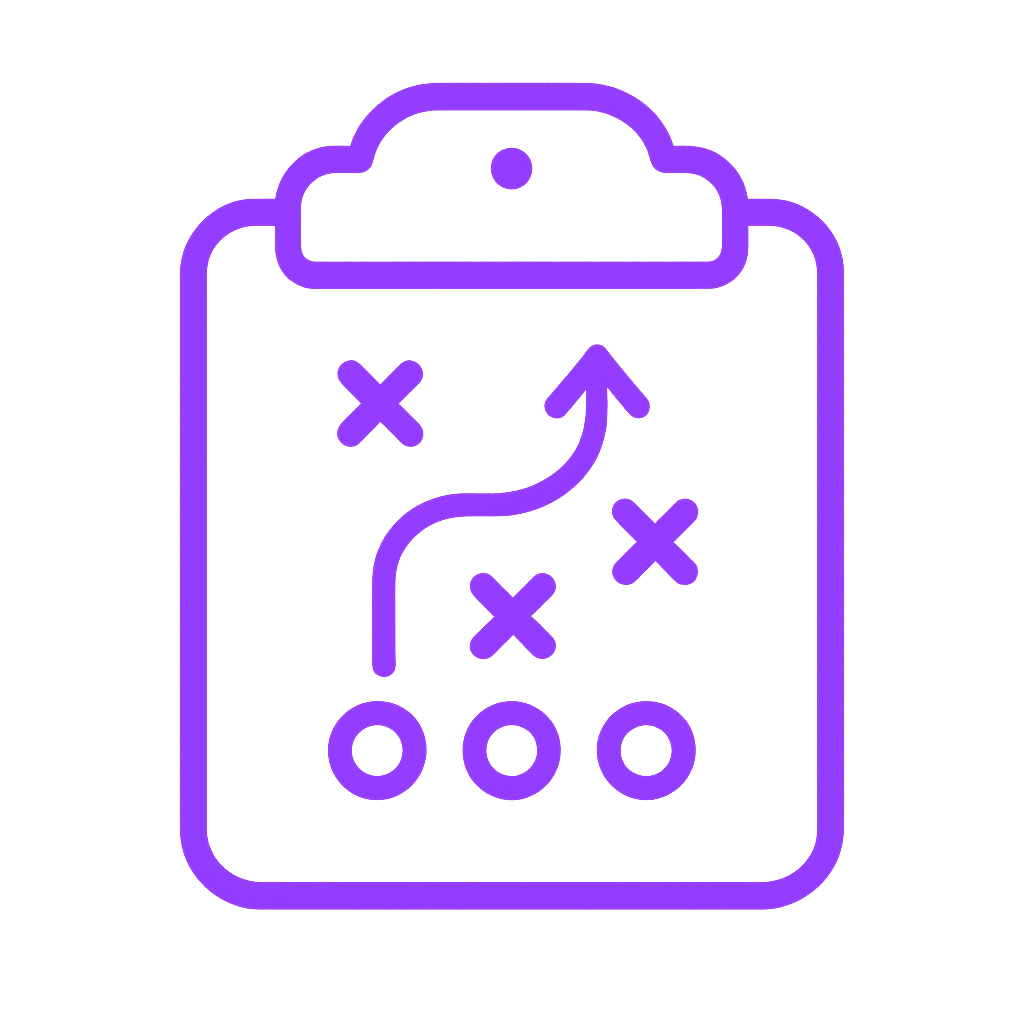How AI Tracks KPIs for Business Growth



In today’s hyper-competitive landscape, AI for business growth is no longer a futuristic concept—it’s a necessity. From automating routine tasks to predicting customer behavior, artificial intelligence is helping businesses gain an unprecedented edge. One of the most potent areas where AI is making an impact is KPI tracking. According to PwC, AI could contribute up to $15.7 trillion to the global economy by 2030. For businesses, much of this potential lies in how AI transforms data into actionable strategy, starting with KPI tracking. By transforming how companies monitor and act on key performance indicators, AI ensures smarter, faster, and more effective decision-making.

Key Performance Indicators (KPIs) are measurable values that reflect how effectively a business achieves its objectives. Whether it’s sales conversion rates, customer retention, or operational efficiency, KPIs help leaders understand what’s working and what’s not.
However, tracking KPIs manually can be time-consuming, error-prone, and reactive. That’s where AI tools come in.
Tracking KPIs is essential for measuring success, but traditional methods often fall short in today’s data-driven world. Manually updating spreadsheets or relying on static dashboards can lead to delays, human error, and missed opportunities. This is where AI for business growth redefines how KPIs are monitored and acted upon.

AI can automatically collect and consolidate data from multiple platforms—CRM systems, marketing tools, sales software, finance apps, and more. Instead of spending hours gathering and cleaning data, AI-driven systems do it in seconds. This provides a real-time, unified view of business performance, which is essential for fast, informed decisions.

One of the standout features of AI tools for business growth is their ability to detect anomalies and patterns that humans might miss. Whether it’s a sudden drop in sales, a spike in website traffic, or unusual customer behavior, AI flags these changes immediately. This allows businesses to identify issues or capitalize on opportunities before competitors do.

AI doesn’t just look at past performance, it predicts future trends. Using historical data and machine learning algorithms, AI forecasts key metrics like revenue, churn rate, and customer acquisition costs. This predictive power gives businesses a strategic edge, enabling proactive rather than reactive decision-making. Tools like Battleboard™ take this further by benchmarking your metrics against competitors—revealing market shifts before they impact performance.

AI can track progress toward goals and even suggest course corrections. For example, if you’re falling behind on a monthly sales target, AI can analyze contributing factors and recommend specific actions like reallocating ad budget or adjusting your sales funnel. This makes KPI tracking dynamic and adaptive instead of static.
Not every department needs the same data. AI enables personalized marketing, sales, finance, and operations dashboards tailored to each team’s priorities. This ensures everyone stays focused on the KPIs that matter most to them, boosting alignment and productivity.

As businesses scale, managing performance metrics manually becomes increasingly complex and inefficient. That’s where AI-powered KPI monitoring steps in offering smarter, faster, and more accurate ways to track what truly drives growth. Whether you’re an enterprise or exploring AI for small business growth, these benefits are game-changers.
With AI, your dashboards are no longer lagging indicators. Data is processed in real-time, providing live visibility into KPIs across departments. Whether it’s sales, marketing, or customer support, you can monitor progress as it happens and make timely, informed decisions.
Example: Spot a dip in engagement or a sales funnel bottleneck as it happens, not weeks later.
AI doesn’t just show what happened; it helps forecast what’s likely to happen next. By analyzing historical trends and patterns, AI tools can predict future outcomes like revenue growth, customer churn, or lead conversion.
Predictive analytics help leaders proactively adjust strategies before problems escalate.
Say goodbye to manual spreadsheet updates and clunky report building. AI automatically generates visual, easy-to-digest reports on your KPIs—daily, weekly, or on demand. These reports are tailored to different stakeholders so everyone gets the right insights at the right time.
This reduces human error and frees teams to focus on strategy instead of reporting.
By providing deep insights into what’s working and what’s not, AI solutions for business growth empower leaders to base decisions on data, not gut instinct. AI ensures KPIs are not just tracked but genuinely understood in the context of broader business goals.
Better insights = smarter, faster, more confident decisions.
AI can customize KPI dashboards for different departments and team members. This ensures that everyone, from sales to customer support, is aligned with organizational goals and that the metrics that matter most to them are tracked.
Boosts collaboration, clarity, and accountability across the board.
As your business grows, so do your KPIs. AI-powered tools scale effortlessly handling increasing data volume, changing business models, and evolving goals without a hitch.
Whether you’re a startup or a large enterprise, AI tools for business growth grow with you.
While AI for business growth offers powerful advantages, it has hurdles. Businesses often encounter roadblocks when adopting AI-powered KPI tracking, especially during the initial phases.
Here are the most common challenges and proven ways to overcome them.
Many businesses operate with disconnected systems; marketing, sales, finance, and customer service tools all store data in isolation. This fragmentation limits AI’s ability to generate meaningful insights.
Implement a centralized data platform that connects your systems via APIs or data pipelines. ImpelHub, for example, pulls data from various tools into one intelligent dashboard, ensuring seamless integration and holistic KPI tracking.

AI is only as good as the data it processes. Incomplete, outdated, or inconsistent data leads to inaccurate predictions and unreliable KPI insights. Invest in data hygiene. Set up processes to clean, validate, and update data regularly. Use AI-powered tools that automatically flag anomalies or missing fields to maintain high data integrity.
Not every team has data scientists or AI experts, and implementing AI may feel intimidating or out of reach for many small businesses. Use no-code or low-code AI platforms like ImpelHub that abstract the complexity behind intuitive dashboards and guided setups. These tools make AI for small business growth accessible without requiring a technical background.

AI systems often rely on past data to predict future performance. However, relying too heavily on historical trends can be risky in fast-changing markets or during disruptive events. Continuously feed AI systems with the latest real-time data. To stay adaptive, use hybrid models that combine historical insights with current market signals
AI adoption can create fear or skepticism among teams, especially if perceived as a “black box” or a threat to jobs. Build trust by clearly communicating how AI enhances roles, not replace them. Provide visibility into how AI decisions are made, and start with pilot projects to show quick wins.
Implementing AI tools may initially seem expensive or time-consuming, particularly for small or mid-sized businesses. Start small. Prioritize a few high-impact KPIs to automate, then expand gradually. Many platforms (including ImpelHub) offer modular pricing and scalable plans, making AI tools for business growth cost-effective.
Overcoming these challenges involves not just technology but also strategy, communication, and choosing the right partners. With the right approach, the path to AI-powered KPI success becomes manageable and transformative.
ImpelHub leverages artificial intelligence (AI) to revolutionize how businesses monitor and act upon their key performance indicators (KPIs), facilitating data-driven growth and operational efficiency. Here’s how ImpelHub utilizes AI for KPI success:
ImpelHub initiates the process by creating a personalized ‘Business Brain,’ a contextual knowledge repository powered by AI and human expertise. This involves gathering and validating insights across three key streams:
This ‘Business Brain’ serves as a personalized, secure, AI-driven tool that evolves with the business, enabling precise KPI tracking and strategic planning.
ImpelHub incorporates a Client Feedback Loop (CFBL) at every stage to validate and enhance data accuracy. This iterative process ensures that insights are
This approach guarantees that the AI outputs are trustworthy and customized to the business’s specific needs.
With the ‘Business Brain’ in place, ImpelHub’s advanced modules transform insights into clear, actionable plans to drive growth:
Relying on outdated, manual methods to track performance simply isn’t enough. AI for business growth is transforming how companies, be they big or small, monitor, analyze, and act on their KPIs. From real-time data analysis and predictive insights to automated reporting and strategic recommendations, AI empowers businesses to operate smarter, faster, and more efficiently.
Yet the real power of AI lies not just in automation but in the clarity and confidence it brings to decision-making. ImpelHub goes a step further by combining AI tools for business growth with expert-driven feedback loops and custom insights tailored to your unique needs. Whether you’re seeking AI solutions for business growth or exploring AI for small business growth, the key is in choosing the right partner and starting with the KPIs that matter most.
Whether you’re a startup or scaling enterprise, ImpelHub’s AI solutions for business growth are built to adapt to your needs, helping you grow smarter, not harder.
Explore how ImpelHub can transform your KPI strategy.

2 combos (1 competitor × 2 dimensions)
20 combos $5 per additional combo
100 combos $4 per additional combo
280 combos $3 per additional combo

7 Steps / 8 – 10 days / 2 – 3 hours of your time
Maximize your impact with ImpelHub’s Growth Lever Identifier—our AI-powered system that discovers your single biggest growth lever and accelerates your success. By analyzing your revenue streams, marketing channels, and core metrics, it highlights the most effective path to scalable growth and pinpoints your highest-ROI strategy, so you can focus on what truly matters, multiply your revenue, and stay ahead in today’s competitive market. Our clear, data-driven action plan ensures you can scale faster and more efficiently than ever.
Insight360, part of the “Your Business” pillar in the Business Brain/Context framework, delivers data-driven insights across 9 categories and 40+ business aspects, including market positioning, competition, revenue, trends, and brand identity.
It drives two key outputs:
With a multidimensional business view, Insight360 helps optimize positioning, enhance engagement, and accelerate growth.
Insight360+ expands on Insight360 with 15 additional dimensions, offering a deeper analysis of business strategy. It provides a self-reflective framework to uncover opportunities in:
With Insight360+, businesses refine strategies, strengthen positioning, and drive sustainable growth.
FanScope is a comprehensive catalog of buyer types, categorized by 10 key attributes, helping decision-makers assess and refine target audiences before segmentation.
As the first step in segmentation, FanScope informs:
By analyzing buyer roles, revenue segments, and purchase probabilities, FanScope enhances targeting, optimizes resources, and improves sales and marketing efficiency.
The Segmentation Module enhances customer targeting with Rated ICPs, Personas, and Firmographics (B2B), assessing each ICP across 22 attributes, including:
ICP Scoring evaluates profiles on 10 numerical dimensions, enabling businesses to prioritize high-value targets efficiently.
FoeScope is a competitive analysis framework that evaluates competitors across three revenue segments—small, medium, and large—relative to the business’s revenue. It assesses:
As a precursor to CounterEdge, FoeScope helps businesses identify and categorize key competitors, setting the stage for deeper competitive strategy development.
CounterEdge analyzes competitor growth strategies, their impact on the business, and countermeasures to stay competitive. It evaluates:
By leveraging CounterEdge, businesses can anticipate threats, mitigate risks, and implement winning strategies.
NextMove is a growth strategy framework that helps businesses identify, evaluate, and implement high-impact strategies. Each strategy is numerically rated across 10 dimensions, similar to ICP Rating, to prioritize the most effective paths for expansion.
With NextMove, businesses gain a data-driven approach to strategic growth, ensuring scalability, market expansion, and long-term success.
Launch-Execution Blueprint creates high-level execution plans for growth strategies, prioritizing them based on impact, feasibility, and business alignment.
By leveraging Launch-Execution Blueprint, businesses can streamline execution, focus on high-impact strategies, and drive measurable growth.
Maximize your impact with ImpelHub’s AI-powered Growth Lever Identifier. By analyzing revenue streams, marketing channels, and core metrics, it uncovers your biggest growth lever and highest-ROI strategy.
With a clear, data-driven action plan, you can focus on what matters, scale faster, and stay ahead in today’s competitive market.
Maximize your impact with ImpelHub’s Growth Lever Identifier—our AI-powered system that discovers your single biggest growth lever and accelerates your success. By analyzing your revenue streams, marketing channels, and core metrics, it highlights the most effective path to scalable growth and pinpoints your highest-ROI strategy, so you can focus on what truly matters, multiply your revenue, and stay ahead in today’s competitive market. Our clear, data-driven action plan ensures you can scale faster and more efficiently than ever.
Feature Gap Analysis is a powerful tool within ImpelHub that identifies missing or desired features based on the needs and expectations of the target audience. By leveraging Business Brain, it ensures that feature recommendations are strategically aligned with business goals and market demand.
Key Benefits:
Identifies Missing Features – Pinpoints gaps in the product or service offering.
Aligns with Target Audience Needs – Ensures features meet user expectations.
Prioritization via Impact Scoring – Helps decision-makers invest wisely.
Data-Driven Scoring Mechanism
Each feature is rated across five numerical dimensions, enabling businesses to prioritize development efforts effectively:
Revenue Boost
Cost Reduction
Customer Acquisition
Customer Retention
Customer Satisfaction
By leveraging Feature Gap Analysis, businesses can make informed investment decisions, enhance their product-market fit, and drive customer engagement and growth
UXI (User Experience Investigation) is a UI/UX audit framework that evaluates core business pages with unparalleled depth, powered by ImpelHub Audit. Unlike standard audits, ImpelHub leverages Business Brain, ensuring that recommendations are contextually aligned with the company’s strategy, market position, and growth objectives.
Key Audit Components:
Feature & Objective – Identifies key UI/UX elements and their purpose.
Details & Justification – Explains audit findings in a business-relevant manner.
Impact & Area – Evaluates influence on user experience.
Rationale – Context-driven reasoning for suggested improvements.
Impact-Driven Scoring Mechanism
Each UI/UX strategy is numerically rated across five dimensions, helping decision-makers prioritize investments:
Revenue Boost
Cost Reduction
Customer Acquisition
Customer Retention
Customer Satisfaction
This data-driven scoring allows businesses to allocate resources effectively, ensuring maximum ROI on UI/UX improvements and driving sustained growth
Detailed Execution Blueprint is a task list and project roadmap that breaks down high-level strategies into step-by-step, week-by-week execution plans, ready for team assignment and implementation.
Key Features:
Detailed Task Breakdown – Converts strategies into actionable steps.
Week-by-Week Execution Timeline – Ensures structured and phased implementation.
Team Assignments – Each plan is ready to be assigned to the relevant team for execution.
Operational Clarity & Accountability – Provides a clear roadmap to track progress.
By leveraging Launch-Detailed Plan, businesses can ensure smooth execution, improve efficiency, and drive successful implementation
FanScope is an extensive catalog of potential buyer types, both direct and indirect, categorized using 10 key attributes. It helps decision-makers identify, evaluate, and include or exclude buyer types before the segmentation process.
As the first step toward segmentation, FanScope informs:
ICP (Ideal Customer Profile) Definitions
Persona Development
Firmographics (B2B segmentation)
ICP Scoring
By analyzing buyer roles, revenue segments, pain points, and purchase probabilities, FanScope enables businesses to refine their target audience, optimize resource allocation, and improve sales and marketing efficiency.
The Segmentation Module refines customer targeting through Rated ICPs, Personas, and Firmographics (B2B). Each ICP is assessed across 22 attributes, covering:
Profile & Behavior – Segment, characteristics, decision-makers, and buying behavior.
Business Fit – Pain points, goals, product needs, and purchase drivers.
Engagement Factors – Technology, content consumption, marketing channels, and objections.
Strategic Insights – Value proposition, competition, and customer service needs.
ICP Scoring rates each profile on 10 numerical dimensions, helping decision-makers quickly prioritize the best targets for sales and marketing strategies
FoeScope is a competitive analysis framework that identifies and evaluates competitors across three revenue segments—small, medium, and large—relative to the business’s revenue. It assesses competitors based on:
Key Products/Services – Most similar offerings.
Geography – Market overlap.
Target Audience – Shared customer base.
Similarity Score & Reasoning – Measures alignment with the business.
FoeScope serves as a precursor to CounterEdge, laying the groundwork for deeper competitive strategy development by helping businesses identify and categorize their most relevant competitors
CounterEdge analyzes competitor growth strategies, their impact on the client’s business, and countermeasures to stay competitive. It evaluates:
Competitor Strength & Market Impact – Key advantages and threat level.
Affected Business Touchpoints – Areas influenced by competition.
Adaptation Strategy – Actionable countermeasures.
Impact Grade & Rationale – Severity of threat (1-5).
Potential Business Benefits – Strategic opportunities.
By leveraging CounterEdge, businesses can anticipate threats, mitigate risks, and implement winning strategies.
NextMove is a growth strategy framework designed to help businesses identify, evaluate, and implement high-impact strategies. Each strategy is numerically rated across 10 dimensions, similar to ICP Rating, allowing decision-makers to prioritize the most effective paths for expansion.
Key Assessment Areas:
Strategy Type, Objective & Target Audience – Defines the approach, aligns with Ideal Customer Profiles (ICPs), and ensures relevance to market needs.
Key Tactics & Content Marketing – Outlines the execution plan, including marketing initiatives to drive engagement.
Required Resources & Risk Assessment – Identifies necessary investments, potential risks, and feasibility.
Timeline & Measurement Metrics – Provides a structured roadmap for execution and tracking success.
Relevance (%) & Potential Impact – Scores strategies based on alignment with business goals, market trends, and competitive landscape.
By leveraging NextMove, businesses gain a data-driven approach to strategic growth, enabling them to quickly assess and implement the most effective strategies for scalability, market expansion, and long-term success.
GTM/Scale Up Playbook creates high-level execution plans for selected growth strategies, ensuring effective implementation. It prioritizes strategies based on impact, feasibility, and alignment with business objectives.
Key Components:
Phases – Defines the execution stage.
Strategy Score – Numerical rating for prioritization.
Strategy Suggestions & Rationale – Recommended actions with justification.
Highlights – Key takeaways and strategic advantages.
Related Strategy – Links to complementary approaches.
Targeted ICPs (ICP Phase) – Aligns execution with the right customer segments.
By leveraging GTM/Scale Up Playbook, businesses can streamline execution, focus on high-impact strategies, and drive measurable growth.
Insight360 is a key component of the “Your Business” pillar within the Business Brain/Context framework. It delivers data-driven insights across 9 key categories, covering 40+ critical business aspects, including market positioning, competitive landscape, revenue analysis, industry trends, and brand identity.
These insights drive two strategic outputs:
Custom Growth Strategies – Tailored plans developed with AI, Impelian, Impelist, and human expertise to support business expansion and address key challenges.
Contextual UI/UX Audit – Identifies feature gaps and aligns product offerings with market needs.
Insight360 provides a multidimensional understanding of the business, industry, and competitive landscape. By leveraging these insights, businesses can optimize market positioning, enhance customer engagement, and accelerate growth.
Insight360+ enhances Insight360 by analyzing a business at a deeper level through 15 additional dimensions. It provides a self-reflective framework to uncover strategic opportunities in:
Sales & Revenue Optimization – Pricing models, sales processes, and client strategies.
Market & Digital Presence – Online marketing, industry positioning, and partnerships.
Innovation & Technology – AI /Tech integration and product/service development.
With Insight360+, businesses gain a more comprehensive perspective to refine strategies, strengthen market positioning, and drive sustainable growth.

Founder & CEO

Co-Founder & Chief Revenue Officer
Please enter your email to download the Sample Score Card.
Please enter your email to download the playbook.
Unlock exclusive tools for growth